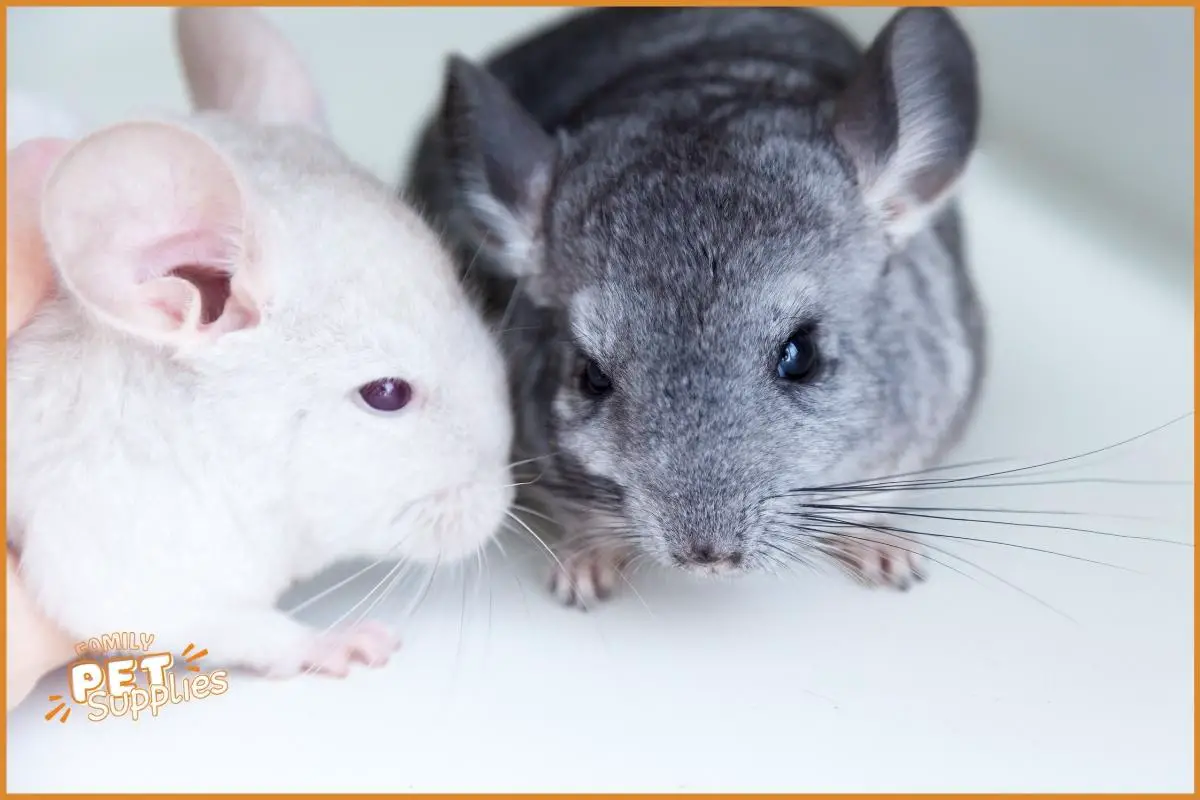Annual veterinary visits are usually recommended for chinchillas. However, if your chinchilla appears to be sick or behaves unusually, it’s important to schedule a vet appointment as soon as possible. Young, old, or recently adopted chinchillas may need more frequent check-ups. Regular check-ups help prevent diseases and maintain your chinchilla’s overall health.

Key Takeaways
- Regular vet visits are important for maintaining overall health and well-being of chinchillas.
- Annual check-ups are recommended for adult chinchillas to ensure preventive care and early detection of health issues.
- Young and senior chinchillas require increased frequency of vet visits to monitor their overall health, detect potential problems, and provide necessary care.
- Recently adopted chinchillas should have more frequent vet visits to ensure their health and well-being during the transition period and to address any potential health issues.
Importance of Regular Veterinary Visits
Regular veterinary visits are important for maintaining the overall health of your chinchilla. By scheduling regular check-ups, you provide your furry friend with the benefits of preventive care and the early detection of health issues. These visits allow the veterinarian to assess your chinchilla’s general well-being, monitor their weight, and check for any signs of illness or abnormal behavior.
Preventive care measures, such as vaccinations and parasite control, can help protect your chinchilla from potential diseases. Additionally, regular veterinary visits give you the opportunity to discuss any concerns or questions you may have about your chinchilla’s health and behavior.
Detecting health issues early on can lead to more effective treatment and can potentially save your chinchilla’s life. So, make sure to prioritize those regular veterinary visits to keep your chinchilla happy and healthy.
Annual Check-Ups for Adult Chinchillas
To ensure the ongoing health and well-being of your adult chinchilla, it’s recommended that you schedule an annual check-up with a veterinarian.
Annual check-ups play a crucial role in preventive care for your chinchilla. Regular veterinary visits allow the veterinarian to closely monitor your chinchilla’s health and detect any potential issues early on. By identifying problems at an early stage, you can provide prompt treatment and prevent the development of more serious conditions.
Additionally, regular check-ups provide an opportunity to discuss your chinchilla’s diet, behavior, and overall care with the veterinarian. This allows you to receive guidance and advice on how to optimize your chinchilla’s well-being.
The benefits of these regular veterinary check-ups can’t be overstated, as they contribute to the long-term health and happiness of your adult chinchilla.
Increased Frequency for Young Chinchillas
If you have a young chinchilla, it’s important to take them to the vet more frequently than adult chinchillas. Young chinchillas are more susceptible to age-specific health issues and require extra care to ensure their well-being.
Regular check-ups for young chinchillas are crucial in detecting any potential health problems early on and implementing preventative care measures. The vet will examine your young chinchilla’s overall health, including their weight, teeth, and fur condition.
They may also provide vaccinations or recommend specific dietary requirements to support their growth and development.
Increased Frequency for Senior Chinchillas
For senior chinchillas, it’s recommended to schedule veterinary visits more frequently than for adult chinchillas. As chinchillas age, they become more susceptible to certain health issues. Regular check-ups can help detect and prevent these problems early on.
Frequency for geriatric chinchillas can vary depending on their individual needs and health status. However, a general guideline is to visit the vet every six months for senior chinchillas. These visits allow the vet to monitor their overall health, check for any signs of illness or discomfort, and provide appropriate care.
It’s important to remember that older chinchillas may require additional medical attention and specialized care, so regular veterinary visits are crucial to ensure their well-being.
Increased Frequency for Recently Adopted Chinchillas
When you bring home a recently adopted chinchilla, it’s important to schedule more frequent veterinary visits to ensure their health and well-being. Veterinary care for recently adopted chinchillas is crucial because they may have unique health considerations during the transition to their new home.
These chinchillas are often stressed and may experience changes in appetite, behavior, and overall health. Increased frequency of vet visits allows for early detection and treatment of any potential health issues.
The veterinarian will perform a thorough examination, including checking their teeth, ears, and overall body condition. They may also recommend specific diet changes or provide advice on creating a suitable living environment.
Recognizing Signs of Illness in Chinchillas
To ensure the well-being of your chinchilla, it’s important for you to recognize signs of illness, as discussed in the previous subtopic, so that you can promptly seek veterinary care.
Being aware of the signs of illness in chinchillas can help you catch any health issues early and prevent them from worsening. Some common signs of illness in chinchillas include changes in appetite, weight loss, lethargy, diarrhea, sneezing, discharge from the eyes or nose, and hair loss.
Additionally, if you notice any changes in your chinchilla’s behavior, such as aggression or excessive grooming, it may be a sign that something is wrong.
It’s crucial to monitor your chinchilla closely and seek veterinary attention if you observe any of these signs to ensure their health and well-being.
Prompt Veterinary Care for Sick Chinchillas
If your chinchilla displays any signs of illness, it’s important that you promptly seek veterinary care to ensure their health and well-being. Recognizing common chinchilla illnesses is crucial in determining when to seek emergency vet care for your furry friend.
Some common illnesses in chinchillas include dental problems, respiratory infections, gastrointestinal issues, and fur loss. These conditions can be serious and require immediate attention from a veterinarian. Delaying treatment can lead to further complications and potentially endanger your chinchilla’s life.
Symptoms such as difficulty breathing, loss of appetite, diarrhea, or any sudden change in behavior shouldn’t be ignored. Remember, chinchillas are small and delicate animals, so it’s always better to err on the side of caution and seek prompt veterinary care when your chinchilla is sick.

